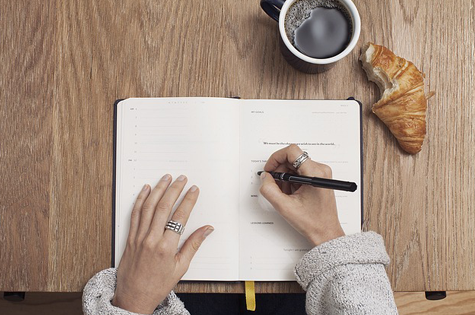Deakin University and Officeworks have embarked on a world-first study to understand the role that handwriting plays in today’s society, having identified a significant gap in wellbeing research associated with handwriting.
Combining a systematic literature review with quantitative and qualitative research, the Australian study has ventured beyond the cognitive learning benefits to uncover the impact putting pen to paper has on individual wellbeing.
It was extremely clear from the 2000 Australians who participated in the survey that writing by hand has positive benefits, with those who handwrite notes, thoughts, ideas, feelings or memories being 2.5 times more likely to experience relief from anxiety, fear and worry.
A greater sense of general life satisfaction was also found among those who handwrite for personal purposes multiple times a day.
While overwhelmed with the insight gained from the study, it’s the significant portion of Australians who are not putting pen to paper that concerns Helen Skouteris, Professor in Developmental Psychology and Head Researcher at Deakin University.
“The fact that one in three Australians never or rarely use handwriting as an outlet to express themselves is definitely a worry, considering the clear benefits afforded to those who do,” she said.
“Seven in 10 people surveyed claimed handwriting helped them be more aware of their feelings and thoughts, which is crucial in maintaining a healthy state of mind.”
“The research we’ve conducted in conjunction with Officeworks is truly significant from a wellbeing perspective, results showing that handwriting helps to reinforce the really positive aspects of our lives via the documentation of important life events, gratitude and reflection.
“Results revealed that spending just 15-20 minutes handwriting each day can result in a more positive state of being. The fact that such a simple, cost effective practise can have such powerful benefits is astounding,” Helen concluded.
Key statistics include:
- Over 1/3 of Australians never or rarely write about personal thoughts, notes, ideas, feelings or memories
- Those who handwrite their thoughts, notes, ideas, feelings or memories are 2.5 times more likely to feel relieved of anxiety, fear and worry than those who type out these feelings
- Australians who handwrite personal notes, multiple times a day, report a greater level of general life satisfaction than those who don't
- Over 7 in 10 Australians aged 18-34 years expressed a feeling of relief after handwriting
- 7 in 10 people believe that handwriting helps them be more aware of their thoughts and feelings
- The greatest difference between men and women was in relation to the calming effect handwriting has - women are 15% more likely to express a sense of relief from anxieties, fears and worries than men
- 18 – 24 year olds feel that typing does not provide the same personal experience as handwriting
- 25 - 35 year olds use handwriting to support their parenting journey, sometimes for the purpose of coping and other times as a form of emotional expression to their children
- 35 – 44 year olds feel that typing does not provide the same creative experience as handwriting
- 45 - 54 year olds say it is important to use handwriting to document significant life events
- Over 55 year olds overwhelmingly described the use of handwriting as a means of making a personal connection to people
Handwriting tips for the family:
- Encourage all the family to write down their daily frustrations and chat them through before bed to help resolve issues or worries
- Pop a notepad and pen on all bedside tables in the house to encourage handwriting thoughts and feelings before switching off
- Write inspiring post it notes and stick them in the kitchen so all family members spot them before and after dinnertime
- Pop a note in your child's lunch box so they can read it when they have lunch at school








 Agree (0)
Agree (0) Disagree (
Disagree (









__small.png)










